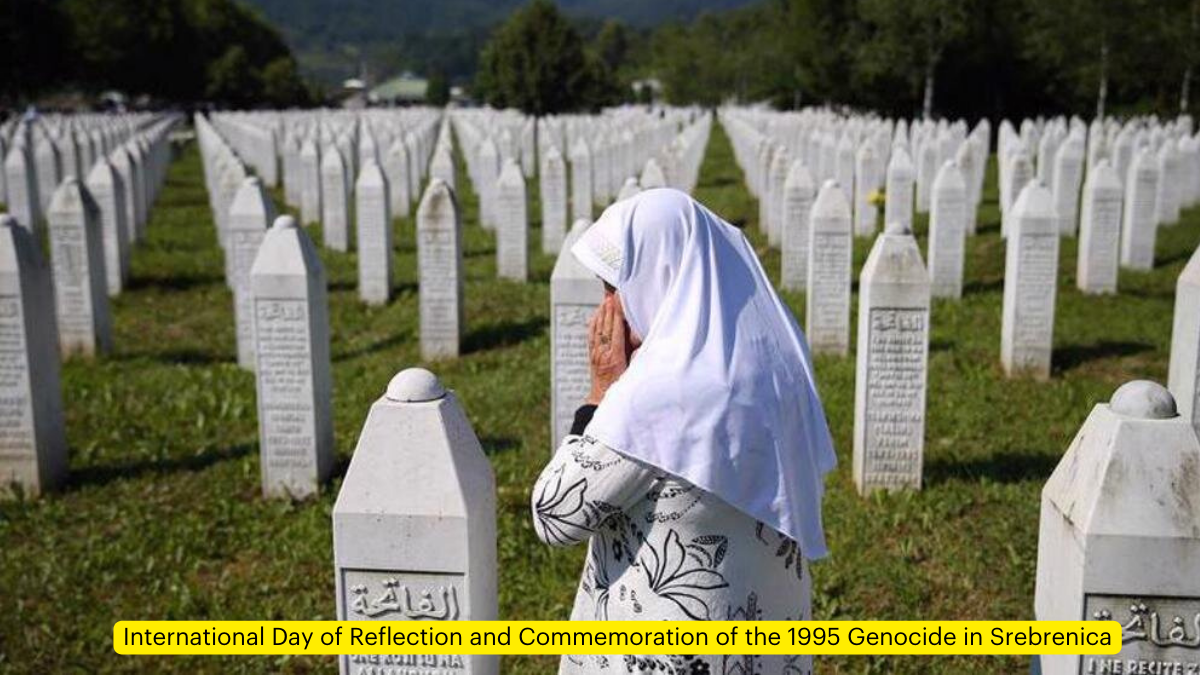The breakup of Yugoslavia in the early 1990s unleashed a series of conflicts that would leave an indelible mark on the Balkan region. Among these, the war in Bosnia and Herzegovina stands out as particularly brutal, claiming over 100,000 lives and displacing more than two million people between 1992 and 1995. The majority of the victims were Bosnian Muslims, caught in the crossfire of ethnic tensions and territorial ambitions. Within this devastating conflict, one event stands out as a stark reminder of the depths of human cruelty and the consequences of unchecked hatred: the Srebrenica genocide.
The Fall of Srebrenica
In July 1995, the world witnessed one of the darkest chapters in post-World War II European history. The town of Srebrenica, previously declared a safe area under UN Security Council Resolution 819, fell to the Bosnian Serb army. What followed was a systematic and brutal massacre of thousands of men and teenage boys, while approximately 25,000 women, children, and elderly were forcibly transferred out of the enclave.
This act of violence shocked the international community, not only for its scale but also for its targeted nature. The Srebrenica massacre stands as the largest single atrocity on European soil since the Holocaust, a grim reminder of the consequences of ethnic hatred and the failure of international intervention.
Legal Recognition of Genocide
The events in Srebrenica were not merely acts of war but constituted genocide, as determined by competent judicial bodies. Both the International Court of Justice (ICJ) and the International Criminal Tribunal for the former Yugoslavia (ICTY) recognized the massacre of Bosnian Muslims in Srebrenica by the army of Republika Srpska as an act of genocide. This legal classification places Srebrenica among a select few events in history that have been officially determined to meet the criteria of genocide, underscoring the severity and intentionality of the crimes committed.
The Aftermath and Ongoing Challenges
The genocide in Srebrenica left deep emotional scars on survivors, families of victims, and Bosnian and Herzegovinian society as a whole. These wounds continue to impede reconciliation efforts among the country’s different ethnic groups, highlighting the long-lasting impact of such atrocities on social cohesion and peace-building.
As the 30th anniversary of the genocide approaches in 2025, the international community faces the dual challenge of commemorating the victims while also combating ongoing efforts to deny or revise the historical facts of the atrocity. United Nations Special Adviser on the Prevention of Genocide, Alice Wairimu Nderitu, has expressed concern over continuous incidents of revisionism concerning atrocity crimes perpetrated during the 1992-1995 conflict. This includes unabated denial of the Srebrenica genocide and the glorification of convicted war criminals, actions that not only disrespect the memory of the victims but also threaten to perpetuate the cycle of hatred and division.
International Day of Reflection and Commemoration
In recognition of the enduring significance of the Srebrenica genocide, the UN General Assembly took a decisive step in May 2024. Through a resolution sponsored by Germany and Rwanda, July 11 was designated as the International Day of Reflection and Commemoration of the 1995 Genocide in Srebrenica. This resolution serves multiple purposes:
- Commemoration: It establishes a formal day for the international community to remember and honor the victims of the Srebrenica genocide.
- Education and Outreach: The Secretary-General is tasked with establishing an outreach programme on the Srebrenica genocide, particularly in preparation for the 30th anniversary in 2025.
- Combating Denial: The resolution explicitly condemns any denial of the Srebrenica genocide as a historical event, recognizing the dangerous implications of such revisionism.
- Prevention: By calling on Member States to preserve the established facts, including through their educational systems, the resolution aims to prevent future occurrences of genocide.
Inaugural Observance
The first official observance of this International Day is marked by a high-level commemorative event organized by the Permanent Mission of Bosnia and Herzegovina. Held in the UN General Assembly hall on July 11, 2024, this event symbolizes the international community’s commitment to remembering the victims of Srebrenica and standing against genocide in all its forms.
Important takeaways for all competitive exams:
- International Court of Justice Established: 26 June 1945;
- Judge Nawaf Salam (Lebanon) as President and Judge Julia Sebutinde (Uganda) as Vice-President of International Court of Justice.
- International Court of Justice Headquarters: The Hague (Netherlands).




 TRAI Marks 29th Foundation Day 2026
TRAI Marks 29th Foundation Day 2026
 Central Excise Day 2026: Why 24 February...
Central Excise Day 2026: Why 24 February...
 World Peace and Understanding Day 2026: ...
World Peace and Understanding Day 2026: ...








